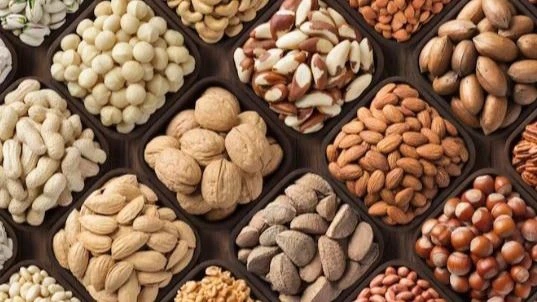Nuts and seeds are nutritional powerhouses, packed with healthy fats, protein, fiber, vitamins, and minerals. As part of a balanced diet, they can contribute to better heart health, improved digestion, and overall well-being.
However, one common debate among health enthusiasts is whether to consume them raw or roasted. Both forms have their own sets of advantages and potential drawbacks. Here’s a closer look at each option to help you decide which is best for you.
Pros of raw nuts and seeds
Nutrient preservation
Raw nuts and seeds retain their natural nutrient profile, including healthy fats, proteins, and a wide range of vitamins and minerals. Heat from roasting can degrade some of these nutrients, especially heat-sensitive vitamins like vitamin E and certain B vitamins.
Digestive enzymes
Raw nuts and seeds contain natural enzymes that aid in digestion. These enzymes can be destroyed during the roasting process, potentially making raw nuts and seeds easier on the digestive system.
Lower risk of added ingredients
Consuming nuts and seeds raw means they are free from added oils, salt, and other seasonings often used in the roasting process. This can be beneficial for those looking to reduce their intake of added fats and sodium.
Cons of raw nuts and seeds
Antinutrients
Raw nuts and seeds contain antinutrients like phytic acid and tannins, which can inhibit the absorption of certain minerals. Soaking or sprouting can reduce these antinutrients, but they are not removed completely in the raw state.
Digestive issues
For some people, raw nuts and seeds can be harder to digest due to their high fiber content and presence of antinutrients. This can lead to bloating or discomfort in sensitive individuals.
Pros of roasted nuts and seeds
Enhanced flavour
Roasting enhances the flavour and aroma of nuts and seeds, making them more enjoyable to eat. The heat brings out natural oils, adding a rich, toasty taste that many people prefer.
Reduced antinutrients
The roasting process can reduce the levels of antinutrients like phytic acid, making the minerals in nuts and seeds more bioavailable. This can potentially improve the overall nutritional value.
Improved digestibility
Roasting can make nuts and seeds easier to digest by breaking down some of the complex starches and reducing moisture content. This can be particularly beneficial for individuals with sensitive digestive systems.
Cons of roasted nuts and seeds
Nutrient loss
Some vitamins and healthy fats can be degraded by the heat used in roasting. Vitamin E, for example, is sensitive to high temperatures and may be reduced in roasted nuts and seeds.
Added ingredients
Commercially roasted nuts and seeds often contain added oils, salt, and other flavourings. These additives can increase the calorie content and potentially negate some of the health benefits.


